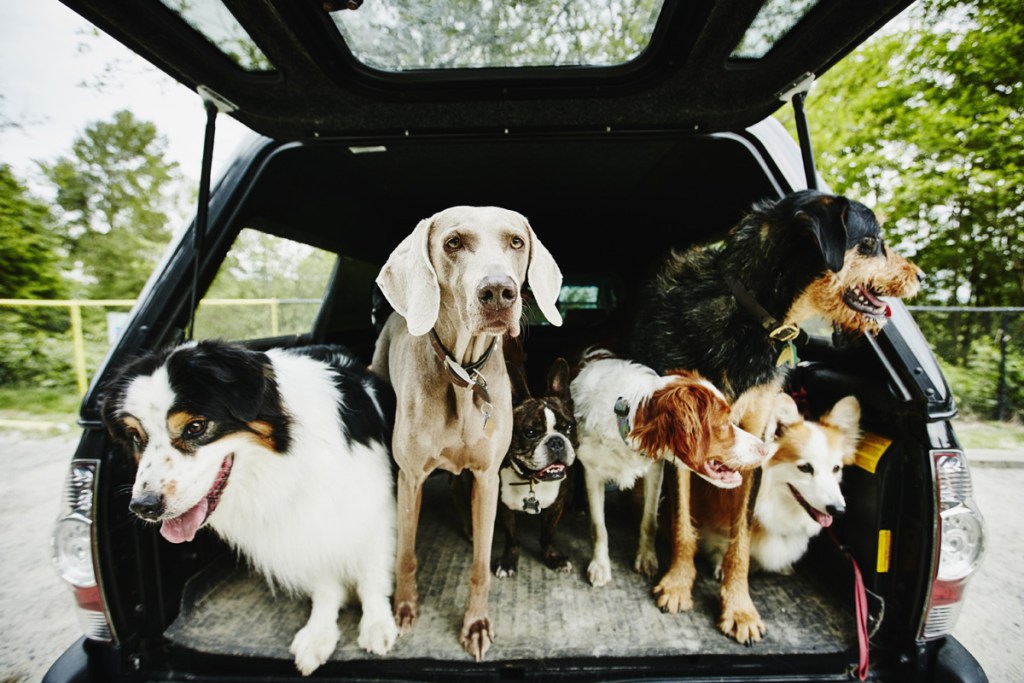If you’ve ever adopted an adorable mixed-breed dog from your local shelter, you’re familiar with the guessing game that happens when you meet fellow dog lovers while out on a walk. The conversation goes something like this: “Oh, just look at those cute floppy ears and curly tail, he looks so interesting. What breed is he?” You respond with the breed mix that was listed on his adoption paperwork and then add your own guess based on his appearance and behavior traits, but you aren’t 100% sure. That’s why more and more pet parents are turning to DNA test kits to take the guesswork out of determining the breed heritage of their dogs.

Dog DNA tests provide valuable information
Several companies that specialize in canine genetic testing offer dog DNA test kits. According to Katie Grzyb, a veterinary expert for PetMD, these test kits provide information about dogs at the cellular level, which is the only way to truly know what breed your dog is. In an NPR article about DNA tests for pets, Angela Hughes, a veterinary geneticist with Mars Petcare, said that DNA tests help owners better understand their dogs: “What makes them tick? Why do they look the way they do? Why do they act the way they do?”
Some DNA tests include health screenings, which can tell you if your dog is predisposed to a hereditary condition based on his genetic makeup. While this doesn’t mean that your dog will suffer from any of these conditions, it does alert pet owners and veterinarians to be on the lookout for certain problems. The following popular at-home tests provide easy-to-use kits for DNA collection that involves swabbing your dog’s mouth for saliva, putting it in a tube, and mailing it off to the company for analysis.
- The Embark Breed and Health Kit ($149) is made in partnership with Cornell University College of Veterinary Medicine and is one of the most expensive test kits. The results provide heritage information going back to a dog’s great-grandparents. The kit tests for more than 200 genetic diseases like glaucoma, degenerative myelopathy, and common adult-onset diseases. The kit also provides pet parents with a list of canine companions who share their dogs’ DNA. It can be fun to connect with the pet parents of your rescued dog’s relatives to see if the pups are similar in appearance and temperament.
- The Wisdom Panel 3.0 Canine DNA Test ($91.95) is less expensive and analyzes more than 350 breeds, types, and varieties. One of the leading canine genetics companies, Wisdom Health has tested the DNA of more than 1.5 million dogs. According to the company, it has developed the largest and most comprehensive breed database in the world. The Wisdom Panel provides a three-generation family tree and a multidrug-resistance screening test, which helps determine whether your dog is allergic to commonly used medications. It also offers a predicted weight profile to help pet parents make good choices when it comes to nutrition and exercise.
- The DNA My Dog Breed Identification Test Kit ($65.95) is a good option for pet parents on a budget. In addition to providing a report on your dog’s ancestry, this test offers detailed information including personality traits and health concerns for the dominant breeds in your dog’s heritage.

How can I find out what breed my dog is from a picture?
If you prefer not to invest in a DNA test, you can select an app that helps identify the breed of your dog based on a scanned photo. While not as accurate as DNA tests, the apps claim to be “quite accurate” based on the quality of the photos. Here are three popular free apps that help identify dog breeds. It’s fun to use all three and compare the results.
- The Dog Scanner: Breed Recognition app identifies more than 370 dog breeds. It also provides feedback on the different breeds along with percentages that are in your mixed dog’s heritage.
- The Puppy.ai Dog Breed Detector app scans your dog’s image and provides results in seconds. It also gives a percentage breakdown of the possible breeds in your dog’s heritage.
- The DogSnap app provides feedback on your dog’s breed makeup along with the physical traits and temperament information on each of those breeds. It also offers fun video challenges you can enter with your dog.
In addition to providing valuable health information, knowing your dog’s ancestry helps with training, behaviorists say. Once you know the breeds in your mixed dog’s lineage, you can start seeing his personality traits as normal for a particular breed type and not as a behavioral problem. So, for example, if your dog has some border collie in his background, he might enjoy herding family members. You can use positive-motivation training to redirect his behavior while also understanding that your dog is using instincts inherited from his ancestors.



